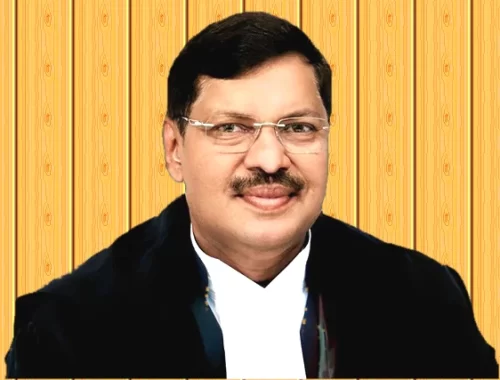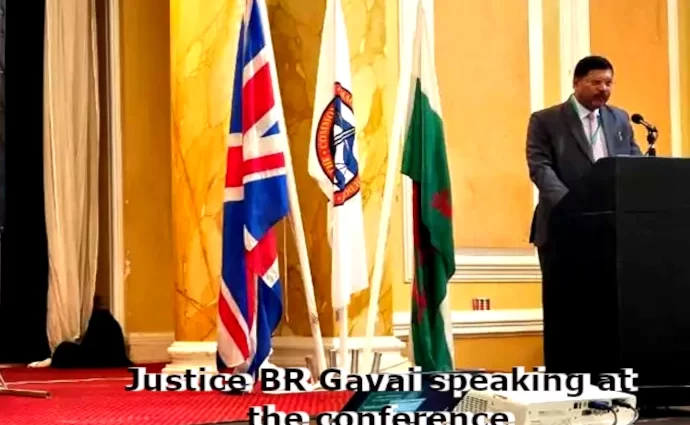Attending the Commonwealth Magistrates and Judges Association Conference at Cardiff, United Kingdom, hosted by the Judiciary of England & Wales at Cardiff, United Kingdom, from 10th -14th September 2023 and representing the Indian judiciary there, speaking on climate change and corporate responsibility, Hon’ble Mr Justice BR Gavai called on the world to now move from the “Corporate Social Responsibility” to “Corporate Legal Responsibility”.
Other panelists speaking at the event included Chief Justice Ivor Achie, Chief Justice of Trinidad and Tobago, Hon’ble Justice Awa Bah, Justice of the Supreme Court of Gambia; and Professor Sir Ross Cranston, FBA, former Judge of High Court of England & Wales.
The session was chaired by Justice Robin Knowles CBE, Judge of the High Court of England & Wales.
While addressing the session, Justice Gavai said:
“Corporate Social Responsibility is a concept where businesses are mandated to integrate social and environmental concerns in their business activities. However, Corporate Social Responsibility in all cases works on self-regulation and allows flexibility to the corporations to fulfil their social obligations. It has mainly been considered as a moral and normative responsibility that corporates can voluntarily pursue. But, “in the event of conflict or serious harm to the environment, animals or people, where corporate irresponsibility is occurring, it is manifestly illogical to leave to the corporation the task of self-regulating.”

“This shows that Corporate Social Responsibility as a concept lacks legal accountability for non-performance of social obligations by companies. Therefore, there should be a shift in focus towards legally mandated accountability.”
The address also saw Justice Gavai comment that climate change is one of the most urgent global challenges.
Climate change necessitates collective action and a robust legal framework to address its impacts, the judge said. He added that such action must come from governments, cities, regions, businesses and investors as well as transnational entities.
He further stressed that businesses today wielded significant power and influence over the global economy. As such, they have a moral responsibility to contribute to climate action, he said.
Justice Gavai also highlighted the significant role played by Indian Judiciary in shaping the legal landscape surrounding corporate responsibility on climate change in India through a series of judgements delivered on the issue, as evidence of the evolution of the Indian judiciary seen moving on with the time.
The Conference was organized in collaboration with the standing International Forum of Commercial Courts.
The theme for the Conference was “Open Justice Today” and it marked the celebration of the 25th anniversary of the Latimer House Principles.
Similar Posts by The Author:
- This is why Peta Credlin should apologize to Australian Indians
- India and the United States Spearhead Global Disaster Resilience Efforts through CDRI
- A big win for Nurul Khan in his bid to unmask Victorian ‘Labor dirt sheet plotters’
- Australian Muslims call for transparency and accountability of Law Enforcement Action
- Problems of Arvind Kejriwal lie in the Charge-sheet against Manish Sisodia

